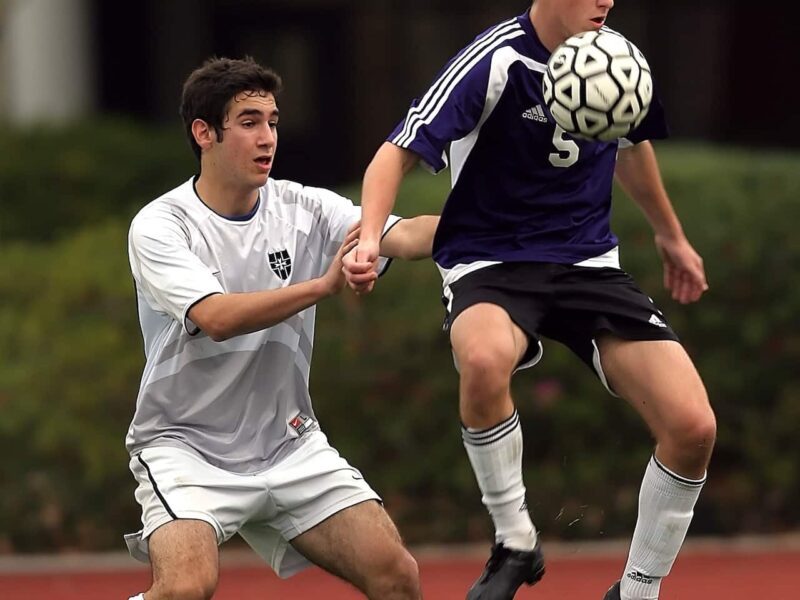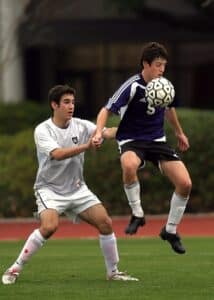What to Expect from a Concussion Diagnosis and Treatment

Staying active is important to good health at any age. The drawback is injury and not just to muscles, tendons and bones. Head injury from falls can lead to traumatic brain injury, which affects more than 2.7 million people in the United States per year. Worse yet, 75% experience mild-traumatic brain injury (TBI) or a concussion, according to data on concussion frequency from the Centers for Disease Control. The most common cause of TBI and concussions are sport’s injuries, auto accidents, assaults, accidents and falls from everyday life. Though for different reasons, those under age 24 and over age 70 are at greatest risk for TBI and concussions.
Treatment for Concussions
When a head injury occurs, most people go through a conventional approach, which generally includes:
- A visit to the doctor or emergency room, where a concussion is diagnosed or ruled out
- A computerized tomography (CT) brain scan, which usually doesn’t show anything
- Reassurance of patient and parents that nothing serious is going on
- Prescribed rest
- Continued observation for persisting or worsening symptoms
- Suspension of physical activities until symptoms subside
- Possible referral to a physiotherapist or neurologist
In the conventional medical community, post-concussion symptoms — including headache, poor sleep, nausea, fatigue, and mood irregularities — may be treated with medications, such as pain relievers, sleep aids, and anti-depressants. However, these generally provide only temporary, symptomatic relief. Then there are rehabilitation therapies, such as physical, occupational, and speech therapy to rebuild synaptic connections to some degree. But these don’t go far enough in supporting brain health at the cellular level, nor do the address other conditions that arise as a result of the injury.
In the best-case scenario, symptoms subside, and your health may seem like it is not seriously impacted. However, you can lose some brain structure and reserve. In the long term, this could lead to symptoms known as Major or Mild Neurocognitive Disorder due to Traumatic Brain Injury, which often goes under-treated. At Restoration Healthcare, we see how traumatic brain injury, even a mild one, can trigger a chain of events throughout the body, resulting in chronic inflammation and autoimmunity that continues to traumatize the brain and the rest of the body for many years following the initial injury.
Integrative Medical Approach to Concussions and TBI
What conventional medicine fails to account for and address in concussion treatment are the relationships and interactions among different systems of the body — namely the brain, gastrointestinal system, and the immune system. When the brain experiences trauma, what’s supposed to happen is the limbic system activates an inflammatory response as a defense mechanism. When the threat has passed, the gut microbiome (the population of microorganisms living in the gut) signals cells in the brain called astrocytes to shut down the inflammation. In many cases, however, a traumatic brain injury disrupts the complex communication pathway between the gut and the brain (the gut-brain axis), triggering an immune response that can lead to chronic inflammation in the brain and elsewhere in the body.
For this reason, we recognize the impact a concussion can have on the gastrointestinal tract and immune system. For example, our patients are examined for the following:
- Vagus nerve dysfunction: The vagus nerve is the longest nerve in the autonomous nervous system, which is responsible for regulating heartbeat, blood pressure, breathing, and digestion. Vagus nerve dysfunction can impair gut motility (discussed next).
- Impaired gut motility: Gut motility refers to the movement of food and waste products through the gastrointestinal tract. Impaired gut motility may result in constipation and small-intestinal bacterial overgrowth (SIBO) — excessive bacteria in the small intestine due to food remaining too long in the digestive tract.
- Increased intestinal permeability (leaky gut): Brain injury often results in damage to the intestinal mucosa and a loosening of the tight junctions between the cells that form the lining of the gut. Normally, nutrients are allowed to pass through these junctions to enter the bloodstream, while larger molecules, such as undigested food particles, are prevented from doing so. With increased intestinal permeability, these larger molecules enter the bloodstream and can trigger an immune response, resulting in inflammation. If the molecules are similar to those of molecules in healthy cells of the body (molecular mimicry), the immune system may attack them as well, causing an autoimmune condition, such as Hashimoto’s thyroiditis or multiple sclerosis.
- Compromised blood-brain barrier: The blood-brain barrier is a network of blood vessels and tissue made up of closely spaced cells that prevents harmful substances in the blood from reaching the brain. When this barrier is compromised, molecules that trigger inflammation can reach the brain, where they’re not supposed to be.
- Immune dysfunction: Because the brain plays a key role in regulating immune function, any damage to the brain can result in over-activation or under-activation of the immune system. Under-activation can inhibit the body’s ability to fight infection. Overactivation can cause or contribute to inflammation and autoimmunity.
Treating the Pathophysiology of Concussions
Enabling the brain to recover involves addressing the underlying pathophysiology — the abnormalities in physiological processes that result from the injury and continue to negatively impact health. Restoration Healthcare’s approach to treating concussion and other mild traumatic brain injuries is to identify and address the mechanisms of injury and pathophysiology.
Here are a few examples of mechanisms of injury and pathophysiology and how they’re addressed:
- Damage to mitochondrial and neuronal membranes — support neuronal and mitochondrial membranes
- Loss of neuronal structure — stimulate neurogenesis with trophic factors like BDNF and induce neural stem cells to differentiate
- Loss of synaptic connections and networks — stimulate synaptogenesis
- Free radical and oxidative stress — increase antioxidant support and activate the NRF2 gene response
- Increased intestinal permeability — repair and restore the integrity of the gut lining through dietary changes and nutritional supplements
- Dysbiosis (imbalances in the population of microorganisms residing in the gut) — restore healthy microbial balance with pre- and probiotics and adjustments to diet and lifestyle
- Hypoxia (lack of oxygen) to the brain — increase oxygenation and blood flow to the brain
- Vagus nerve damage or dysfunction — tone the vagus nerve
Here at Restoration Healthcare, the medical treatment we provide is highly personalized and varies considerably based on when the concussion occurred and on each patient’s labs and brain function test results. In addition, we continue to monitor progress and adjust treatments as the patient’s health is restored. Every 90 days, we measure brain function using the following diagnostics:
- Brain Localization Questionnaire
- RightEye, which assesses eye movement control
- ANS (autonomic nervous system) regulation
- Balance Track for testing vestibular brain function
Self-Help Techniques for Restoring Brain Health and Function After Head Trauma
Whenever you experience head trauma, you should go to the emergency room and visit a doctor for further assessment and treatment. If you are looking for a more comprehensive therapy than what is offered by conventional medicine, we encourage you to seek out care from someone trained in functional medicine and/or integrative medicine for TBI and concussions.
Beyond this, there are several basic steps you may want to consider to help minimize damage and begin to restore brain health and function. Our doctors recommend the following practices to help the body heal appropriately:
- Avoid drinking alcohol, or significantly reduce consumption. Drinking can stop or slow down brain recovery. Alcohol can alter vision, coordination, and balance, which could lead to another TBI.
- Get sufficient sleep. Optimally, stick to lifestyle adjustments and natural sleep aids, if needed, to improve sleep. Why? Because your brain heals itself through sleep, which promotes the release of brain-derived neurotrophic factor (BDNF). According to research published in the Archives of Medical Science, BDNF “plays an important role in neuronal survival and growth, serves as a neurotransmitter modulator, and participates in neuronal plasticity, which is essential for learning and memory.”
- Reduce stress. Brain injury often triggers a release of certain neurotransmitters to a level that are toxic to the brain, called excitotoxicity, which can lead to further neuronal death. The brain needs to be calmed. Ways to do this include meditation, yoga and deep breathing.
- Adopt a low-carb diet. Our clinic finds that a ketogenic diet for six to 12 weeks is optimal. This means limiting net carbohydrate intake to 20–40 grams per day. A high-fat, low carbohydrate diet stimulates beneficial biochemical changes that are seen in a fasting state, and has been shown to be beneficial for neurological and psychiatric disorders. A 2021 study in the journal Nature shows that a ketogenic diet improves SIRT1, an enzyme located primarily in the cell nucleus, which can play a significant role in neuroprotection when a ketogenic diet is followed. The next step is to progress to intermittent fasting — limiting eating to an eight-hour window each day.
- Perform high-intensity interval training (HIIT). This type of training achieves a healthy balance of anabolic (growth and healing) and catabolic (wear and tear) activity. Anabolic exercises include weightlifting, pushups, and squats. Catabolic exercises include running, swimming, biking, and rowing. If you’re looking for a gym that does a great job with HIIT, check out Orange Theory Fitness.
- Engage in vagal nerve retraining. For this, considering enrolling in The DOC Journey by David Hanscom, MD. Any easy way to do this is to gargle with several glasses of water throughout the day to activate the vagal motor nuclei by engaging the palate muscles. Gargle aggressively to induce tearing. Also, induce repeated gag reflexes by gently pressing down on the tongue throughout your day — at least while brushing your teeth twice daily. Our clinic also may suggest coffee enemas daily to induce activation of enteric motility, this may assist in activating the gut-brain axis.
- Finally, be careful to prevent a repeat brain injury during your recovery period. This is probably the single most important aspect of your recovery and cannot be overly emphasized!
Don’t ignore or dismiss any head trauma as minor. Even if symptoms aren’t obvious, any trauma can trigger a chain of events that negatively impacts health and fitness. We strongly encourage you to get checked out by a doctor who understands the underlying pathophysiology of traumatic brain injuries and how to address it. These self-help techniques are useful, but much more can be done. If you’re in or around Southern California, contact us to schedule an initial consultation. Your brain is an amazing, complex, and very sensitive organ and — thanks to neuroplasticity — it can repair itself, assuming the proper supports are in place.
Restoration Healthcare is a Southern California medica clinic that partners with our patients to discover and treat root malfunctions that lead to chronic illness. We help people live long and healthy lives. Unlike other medical practices where turnkey solutions to complex symptoms are prescribed, our doctors’ protocols are handcrafted and personalized with you and your most up-to-date health-related data and objectives in mind. For more information, go to rhealthc.com
PLEASE NOTE: The information in this blog post about concussion is provided for general informational purposes only and may not reflect current medical thinking or practices. No information contained in this post should be construed as medical advice from the medical staff at Restoration Healthcare, Inc., nor is this post intended to be a substitute for medical counsel on any subject matter. No reader of this post should act or refrain from acting on the basis of any information included in, or accessible through, this post without seeking the appropriate medical advice on the particular facts and circumstances at issue from a licensed medical professional in the recipient’s state, country or other appropriate licensing jurisdiction.


